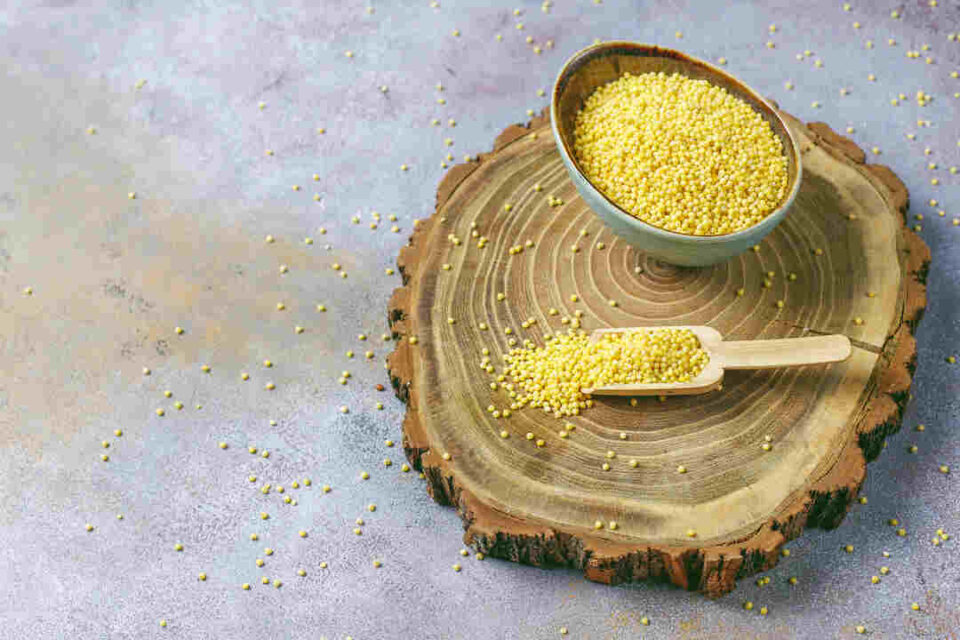Meet Ramesh and Sita, a lovely couple from a quaint village near devanahalli. Ramesh, a 40-year-old farmer, was diagnosed with diabetes a few years back, and Sita, a 35-year-old homemaker, has been battling weight issues. Both were struggling to maintain a healthy lifestyle while adhering to their traditional rice-based diet. That’s when they stumbled upon the remarkable world of millet, an ancient grain that is making a powerful comeback in modern nutrition. Today, let’s embark on a journey to explore the safety, precautions, and challenges of embracing millets as a staple in our everyday diet.
1. Millets: An Ancient Grain with Modern Potential
In recent years, millets have gained popularity in the culinary world as a healthier alternative to rice and other cereals. These small-seeded grains have been cultivated in India for thousands of years and are known for their resilience to adverse environmental conditions. Rich in nutrients and naturally gluten-free, millets are a treasure trove of essential vitamins, minerals, and fiber.
2. Millet Varieties: Embracing Diversity in Nutrition
Millets come in several varieties, each offering a unique nutritional profile. Some of the most commonly consumed millets in India include:
- Pearl Millet (Bajra)
- Finger Millet (Ragi)
- Sorghum (Jowar)
- Foxtail Millet (Kangni)
- Proso Millet (Barri)
- Little Millet (Kutki)
- Barnyard Millet (Sanwa)
- Kodo Millet (Kodra)
Incorporating a mix of these millets in your diet can provide a wide array of nutrients and health benefits.
3. The Nutritional Bonanza of Millets
Millets boast an impressive nutritional profile that surpasses traditional grains like rice and wheat. They are abundant in complex carbohydrates, which provide sustained energy without causing a rapid spike in blood sugar levels. Additionally, millets are a great source of protein, dietary fiber, vitamins (such as B-complex), and minerals (including iron, calcium, magnesium, and phosphorus).
Research shows that millet may help in managing various health conditions such as diabetes, obesity, cardiovascular diseases, and digestive disorders.
4. Safe for All: Millets and Health Considerations
As an Ayurvedic doctor, I often encounter questions from my patients about the safety of incorporating millet into their daily diet. Fortunately, millets are generally safe for consumption by people of all age groups, including children and the elderly. They are naturally gluten-free, making them an excellent choice for individuals with gluten sensitivity or celiac disease.
5. Precautions and Challenges of a Millet-Based Diet
While millets offer numerous health benefits, there are some precautions and challenges to consider:
5.1. Nutrient Deficiencies and Supplementation
Certain millets, such as pearl millet and sorghum, may contain phytates that can hinder mineral absorption. Therefore, combining millet consumption with a diverse diet is crucial to ensure adequate nutrient absorption. Including vitamin C-rich foods like citrus fruits or tomatoes in your meals can help enhance iron absorption.
5.2. Goitrogens and Thyroid Health
Some millets, particularly pearl millet, contain goitrogens, substances that may interfere with thyroid function when consumed in excess. For individuals with thyroid disorders, it is advisable to moderate millet intake and ensure cooking methods that neutralize goitrogens, such as soaking and fermentation.
5.3. FODMAPs and Digestive Sensitivity
Millets contain certain FODMAPs (Fermentable Oligo-, Di-, Mono-saccharides, and Polyols) that may cause discomfort in individuals with irritable bowel syndrome (IBS) or digestive sensitivity. In such cases, it is essential to monitor individual tolerance and adjust the portion sizes accordingly.
5.4. Allergies and Cross-Contamination
Though rare, some individuals may experience allergic reactions to millets. Cross-contamination can occur if millets are processed in facilities that also handle gluten-containing grains, leading to inadvertent exposure for individuals with gluten allergies. Choosing certified gluten-free millet products can mitigate this risk.
Questions About Millets
Let’s address some common questions about millet
1. Can millet help in managing diabetes?
Yes, millets have a low glycemic index and can help stabilize blood sugar levels, making them beneficial for people with diabetes. However, portion control and balanced meal planning are essential.
2. Are millets suitable for weight loss?
Absolutely! Millets’ high fiber content can promote satiety and aid in weight management when incorporated into a balanced diet.
3. Can millet be given to children?
Yes, millets are safe for children and can be an excellent addition to their diet, providing essential nutrients for growth and development.
4. Are millets gluten-free?
Yes, millets are naturally gluten-free, making them suitable for individuals with gluten intolerance or celiac disease.
5. How can I cook millet to reduce anti-nutrients?
Soaking and fermenting millets can help reduce anti-nutrients like phytates and goitrogens, enhancing nutrient absorption and reducing potential adverse effects.
6. Are millets suitable for pregnant women?
Yes, millets are a valuable source of nutrients for pregnant women. They provide essential vitamins and minerals required for a healthy pregnancy.
7. Can millet be included in a keto diet?
Millets have moderate carbohydrate content, which may not align with strict keto diets. However, they can be a part of a balanced low-carb diet.
8. Do millets contain antioxidants?
Yes, millets contain antioxidants that help combat oxidative stress and promote overall health.
9. Can millet worsen thyroid problems?
Certain millets contain goitrogens, which can interfere with thyroid function if consumed in excessive amounts and in raw form. Individuals with thyroid issues should monitor their millet intake.
10. Can millet cause allergies?
While allergies to millets are rare, some individuals may experience allergic reactions. If you notice any adverse symptoms, consult a doctor.
Embracing Millets: A Wholesome Future
Incorporating millet into your daily diet can be a smart and healthy choice. They offer a plethora of nutrients and health benefits, making them a valuable addition to our traditional Indian meals. However, it is essential to be mindful of potential precautions and challenges to ensure a balanced and nourishing diet.
As an Ayurvedic doctor, I encourage you to explore the world of millets and discover the numerous culinary possibilities they bring. Remember, moderation and variety are the keys to optimal nutrition. So, why not start your millet journey today and experience the goodness of this ancient grain in your daily life?

